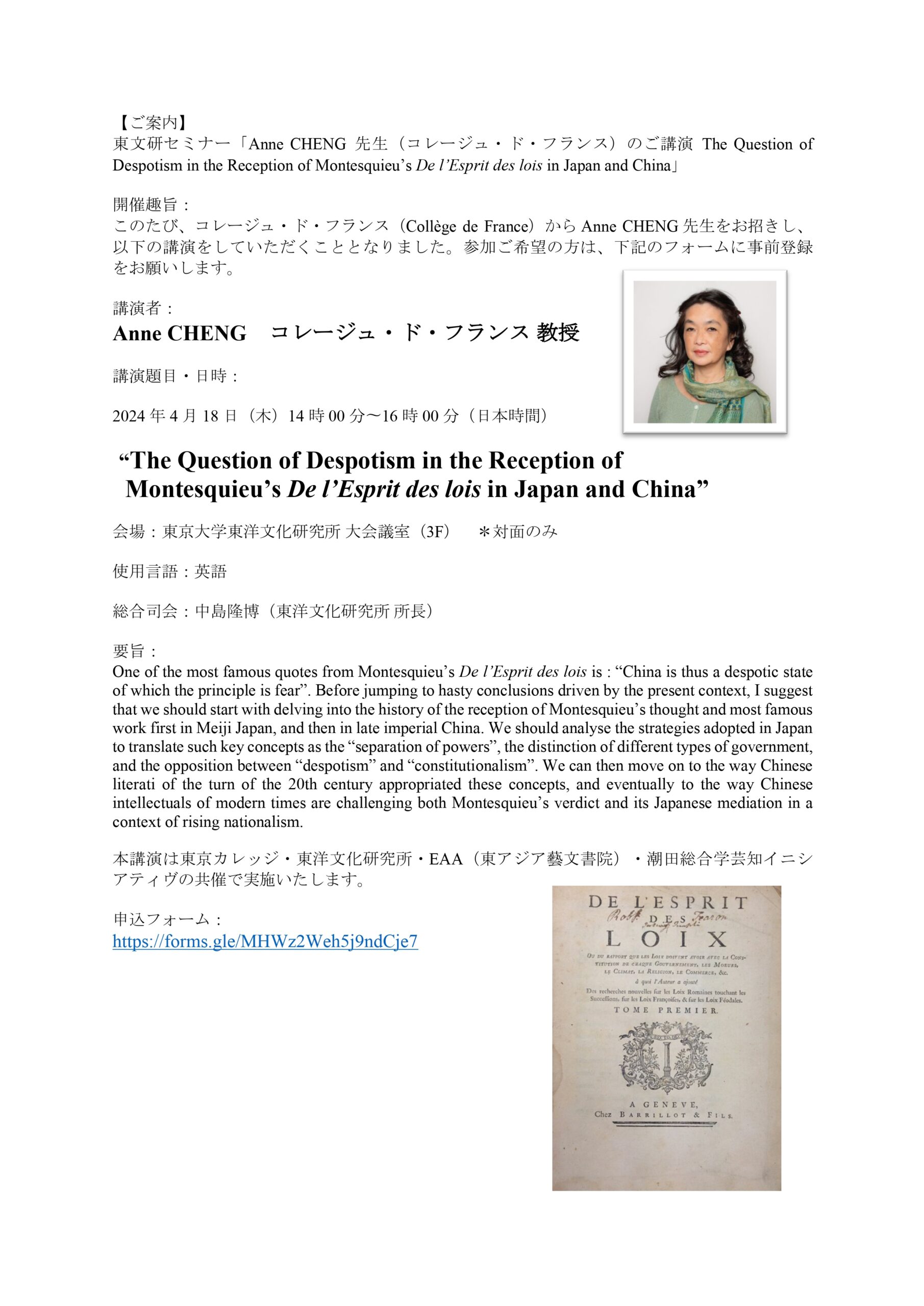The Question of Despotism in the Reception of Montesquieu’s De l’Esprit des lois in Japan and China (Lecture by Prof. Anne CHENG)

| Date(s) | Thursday, 18 April 2024, 14:00-16:00 JST |
|---|---|
| Venue |
Conference room (3F) Institute for Advanced Studies on Asia, The University of Tokyo (Register here) |
| Registration | Pre-registration required |
| Language | English |
| Abstract |
One of the most famous quotes from Montesquieu’s De l’Esprit des lois is: “China is thus a despotic state of which the principle is fear”. Before jumping to hasty conclusions driven by the present context, I suggest that we should start with delving into the history of the reception of Montesquieu’s thought and most famous work first in Meiji Japan, and then in late imperial China. We should analyse the strategies adopted in Japan to translate such key concepts as the “separation of powers”, the distinction of different types of government, and the opposition between “despotism” and “constitutionalism”. We can then move on to the way Chinese literati of the turn of the 20th century appropriated these concepts, and eventually to the way Chinese intellectuals of modern times are challenging both Montesquieu’s verdict and its Japanese mediation in a context of rising nationalism. |
| Program |
Lecturer: Anne CHENG (Tokyo College Professor, The University of Tokyo; Professor, Collège de France)
Facilitator: NAKAJIMA Takahiro (Director, Institute for Advanced Studies on Asia) |
| Organized by | Tokyo College; Institute for Advanced Studies on Asia; East Asian Academy for New Liberal Arts; Ushioda Initiative of Arts |
| Contact | tokyo.college.event@tc.u-tokyo.ac.jp |















